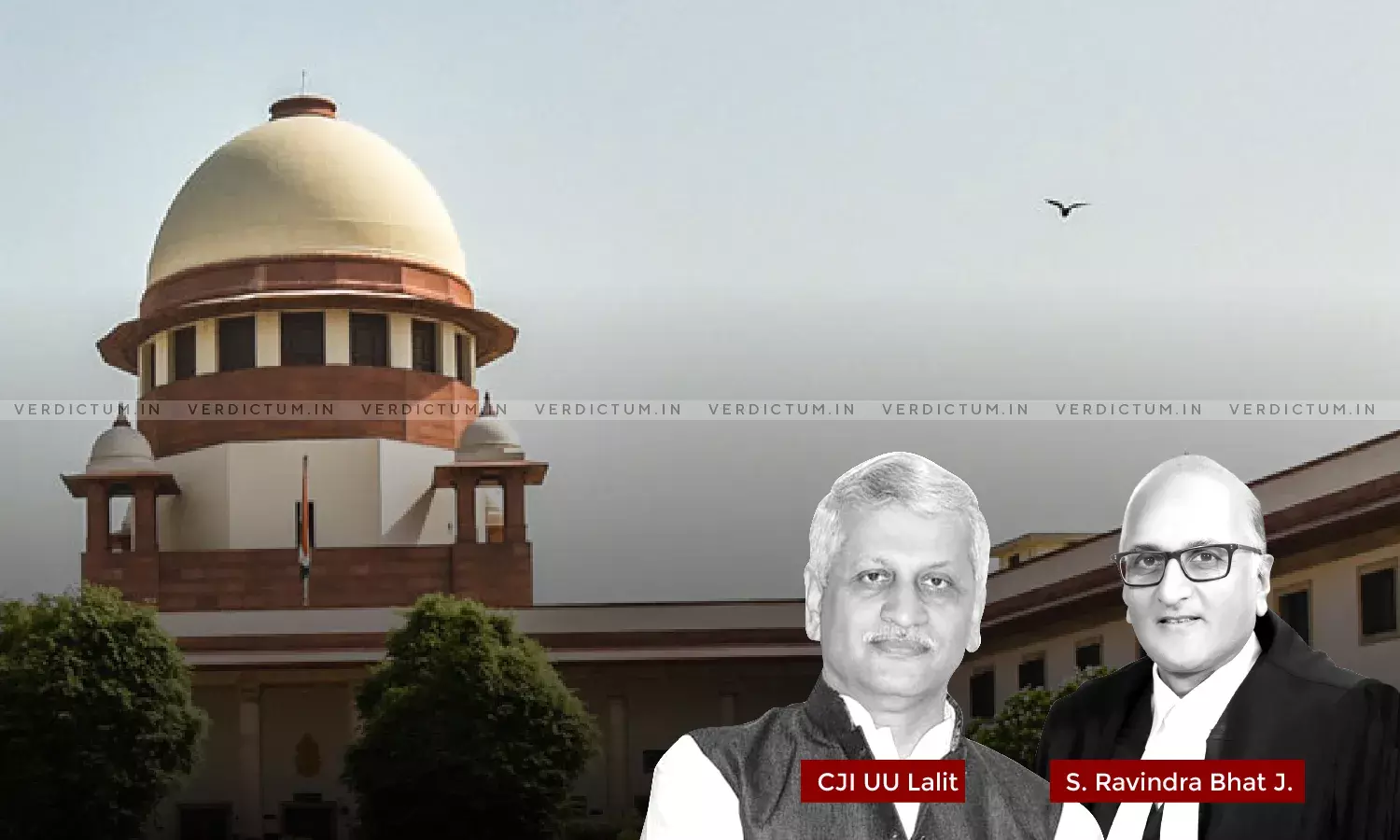Wealth Of Temples Should Go Back To People- Supreme Court Remarks On Allegation Of Govts Using Temple Funds

The Supreme Court today while hearing a PIL challenging the laws made to administer Hindu Temples and Gurudwaras as arbitrary and discriminatory, observed that the wealth of Temples is received from the people and that it should go back to the people.
Justice S. Ravindra Bhat made the remark when the Counsel for the Petitioner submitted that while many smaller temples under Government control are being closed due to lack of funds, money from wealthier temples is being used by the Government. Justice Bhat who was part of the Bench also comprising of Chief Justice U. U. Lalit cited the example of the Tirupati temple running educational institutions and said that Temples have always catered to the needs of the society. He cited the example of some Hindu institutions voluntarily giving up their lands.
Justice Bhat also said that earlier, the Temples were places of wealth and if the laws put in place 150 years ago are overturned, they will go back to the earlier position, meaning that wealth will once again accumulate in Temples.
Justice Bhat also suggested that offerings at big Temples like Tirupati and Shiridi are so large that they cannot be left unregulated.
Senior Advocates Arvind Datar and Gopal Sankaranarayanan appearing for the Petitioner told the Court that only religious institutions of some communities are being administered by the state. They also submitted that minorities have no special rights as far as religious institutions are concerned. On the submission that there is serious mismanagement and many temples in Karnataka have been closed down, the Court asked if there is any supporting document to back the claim.
When the Senior Counsel for a party before the Court, a Hindu Seer, pointed out that wealth of some temples have been misappropriated, Chief Justice Lalit asked whether the persons who have allegedly misappropriated the funds been made parties to the plea. The answer was in negative.
The Petition was adjourned at the request of the Counsel for the Petitioner for producing materials in support of the statements and allegations made in the Petition.
The PIL filed by Advocate Ashwini Kumar Upadhyay in the year 2021 also seeks a declaration that Hindus, Jains, Buddhists and Sikhs have similar right to establish and manage their religious places like Muslims and Christians and that the state cannot abridge it.
The Petition filed through Advocate Ashwini Dubey seeks direction to the Center or the Law Commission of India to draft a Uniform Code for Religious and Charitable Endowments.
The Petition says that the cause of action accrued in 2016 when a 1000-year-old temple built by King Rajendra Chola-I in Thanjavur district of Tamil Nadu was pulled down by the state in the garb of renovation and was never put together again. It says that the Tamil Nadu government manages around 30 thousand temples without capacity or qualified experts for conservation.
"The pathetic condition of temples and gurudwaras is the result of being managed by callous-corrupt State officials. Several Hindu Religious Charitable Endowments Acts have allowed States to assume financial, economic and managerial control of thousands of temples. These HRCE departments are headed either by a Minister or by so-called autonomous boards and many times State governments appoint non-Hindus to mange temples", the plea says.

